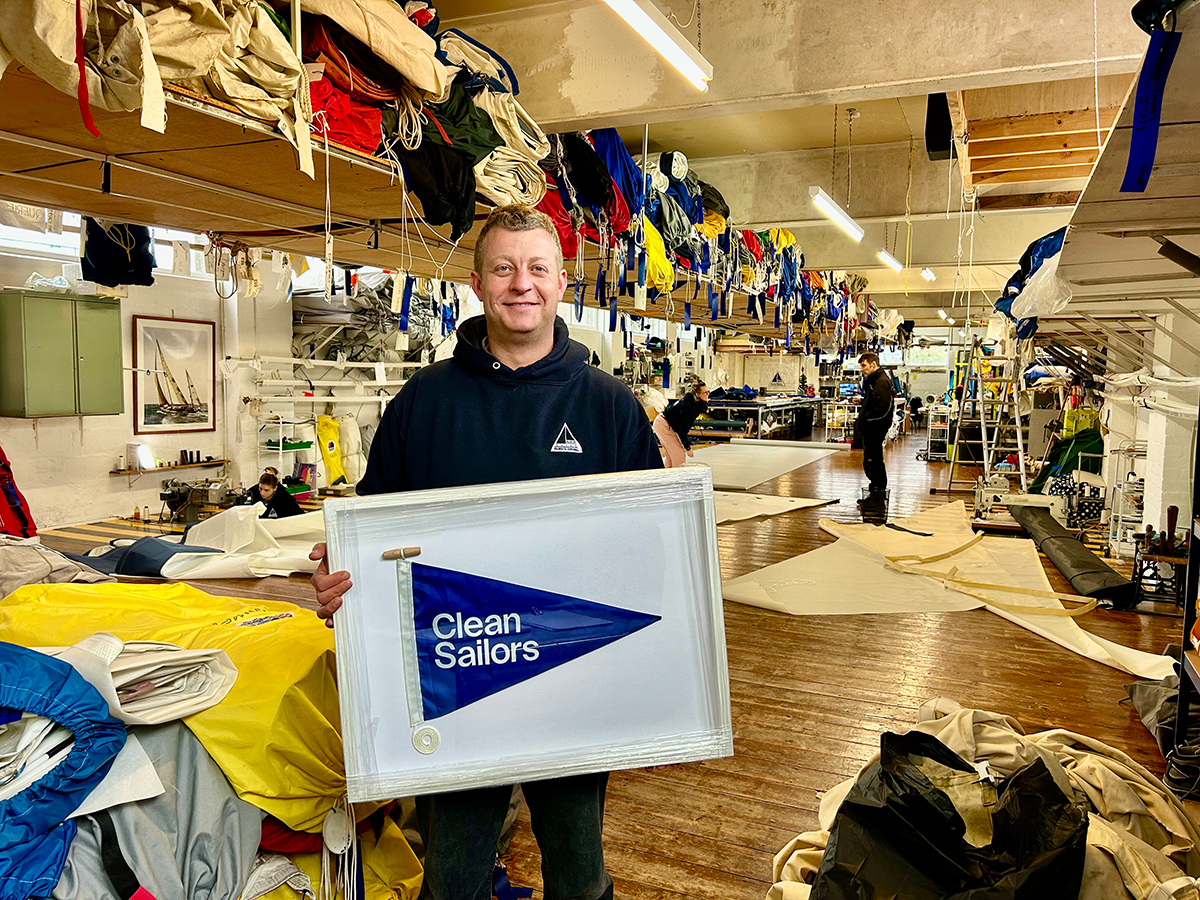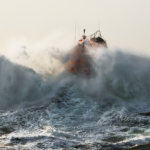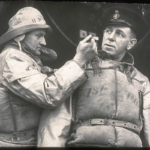It’s 2021 and SKB Sails in Falmouth, Cornwall, have agreed to become the first drop-off point for old sails, in a pilot project by Clean Sailors.
Sailors were encouraged to drop off their old sails at SKB Sails, free of charge. The sails would then be ‘upcycled’ and given a second life, from being made into host of lifestyle products such as bags, washbags, deck chairs and doorstops and taken up by other individuals, including sailors, looking for second-hand kit.
Fast-forward three years, and there are now 38 more such drop-offs in 11 countries around the world.
“Sailcloth is tough stuff. The key idea at the time was to ‘start local’, giving Cornwall-based sailors the opportunity to keep their spent sails out of landfill. As you can image, sails are made from a highly complex variety of materials which stay in our environment for hundreds of years. Nick (director of SKB Sails) kindly agreed to trial the project with me and it became quickly clear that sailors are really keen to keep these huge sheets of textile out of the ground. I was keen to connect sailors and their old kit with others who could make use out of it. Safe to stay Team SKB Sails helped start a movement, with ReSail by Clean Sailors, and we’ve since signed up organisations and drop-offs from British Colombia to Australia,” says Holly Manvell, founder of Clean Sailors.
To date, there remain no formal sail-recycling facilities anywhere in the world, with over 97% of all sails used globally ending up in landfill or an incinerator.
“We joined ReSail by Clean Sailors as we had so many customers who don’t know what to do with old sails. To give them another use, a second lease of life – why not?” says Nick Head, sailmaker and director of SKB Sails.
“It has totally snowballed and it’s really good to see that there are other companies onboard who share the same view as us.”
Through ReSail by Clean Sailors, it’s estimated that several thousand sails have been donated by sailors and boatowners instead of them being put into landfill, with OneSails East in the UK, alone, having taken in over 200 during their first year registered with Clean Sailors’ ReSail platform.
“Clearly, there is need for more formal, sponsored processes when it comes to end of life materials in our industry. Whilst the efforts of small organisations are noble, only 3% of global sail waste is heading through projects such as ReSail. There remains a mammoth opportunity here, notably for the global sailmakers who account for the majority of production,” explains Holly.
In the meantime, through ReSail by Clean Sailors and their growing global partnerships, light will continue to be shone on the issue of end-of-life materials with the aim of inspiring innovation and championing change within the marine industry.





















